[ad_1]
From phones to computing to power tools, cutting the cord has been a mark of progress—and much in the same way, wireless charging for EVs could be a game-changer.
With Tesla finally teasing a wireless inductive charging pad within the various forward-looking statements of its Investor Day presentation on Wednesday, consider it game on.
Tesla provided no details about when and even if it might be offering the tech to owners. But with its promise of daily charging without having to manage charge connectors morning and night, there’s likely a very good reason the company decided to include it among glimpses of “cool s***” in its charging future.
“We’ve got to scale our infrastructure, and yes, we want to power it via renewable sources,” said Rebecca Tinucci, Tesla’s head of global charging infrastructure, in concluding the Charging portion of the presentation. “But we’re Tesla; so we also want to make sure that we’re continuing to focus on providing really incredible charging experiences.”
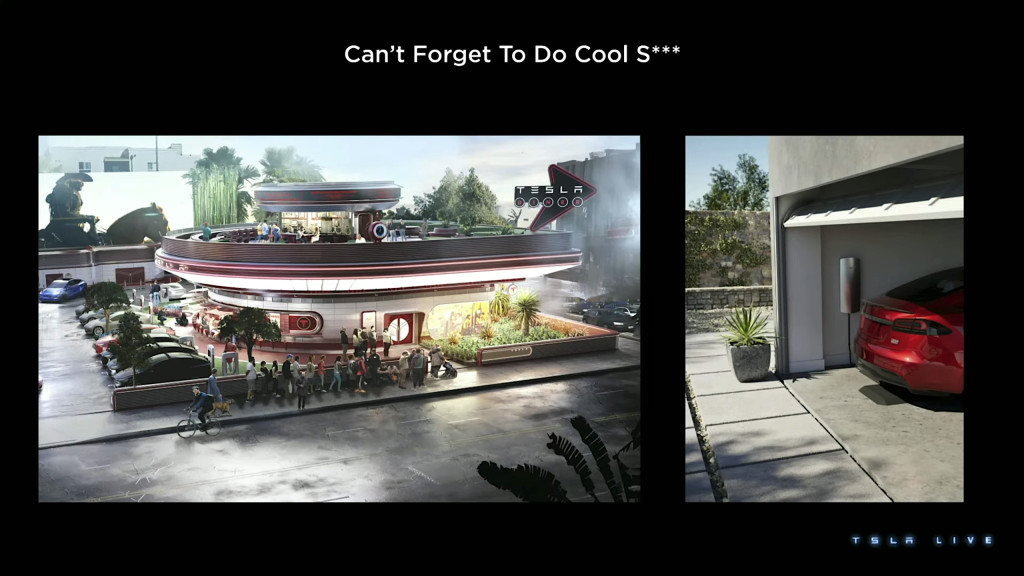
Tesla diner and wireless charging pad
In the presentation slide, on one side was what appears to be a new rendering of the Southern California diner and Supercharger station that Tesla has teased for a long time. And on the other side of the slide was a wireless charging pad below a garage-parked Tesla Model S.
It’s also a necessary technology component for self-driving vehicles—and a more elegant approach than the prototype snake charger Tesla has shown in the past.
WiTricity, one of the leading companies focusing toward inductive EV charging for passenger vehicles, wouldn’t comment about whether the example shown with the Tesla is theirs or a licensed form of their technology. However the company has fitted both a Tesla Model 3 and Ford Mustang Mach-E with wireless charging tech for demonstration purposes, and it’s the only company that supplies the technology to a factory OEM application outside China with the Genesis GV60 in its home market of South Korea.
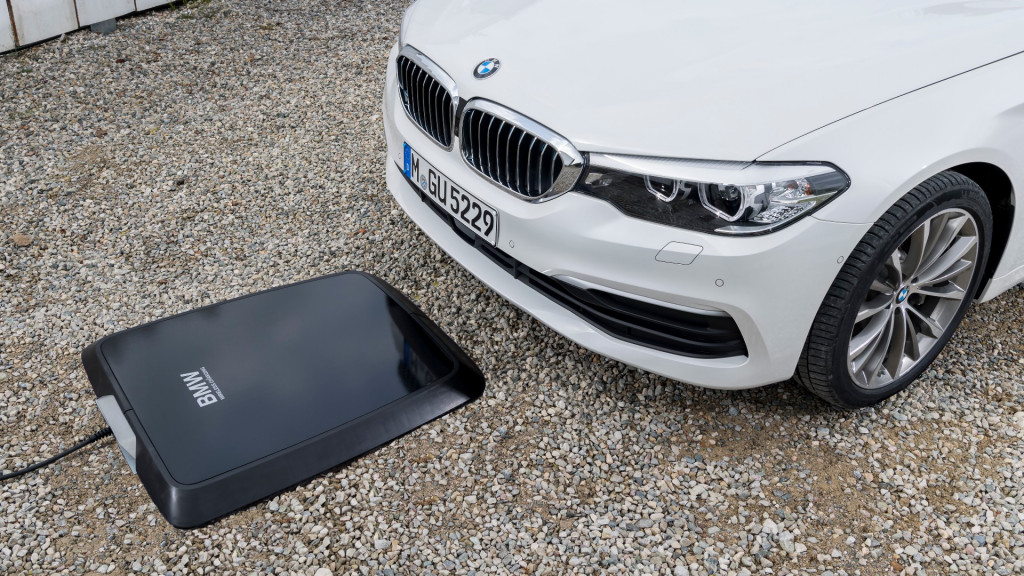
BMW 5-Series plug-in hybrid wireless charging system
About five years ago BMW and Mercedes-Benz both planned to offer the feature, but both ultimately reversed course—with Mercedes’ availability nixed and BMW limiting availability to a lease-only pilot program with the 530e plug-in hybrid. But an SAE standard ratified in 2020 that assures interoperability, plus interest and investment from a range of suppliers—including Siemens, which took a minority investment in WiTricity—has altogether helped nudge the tech closer to market now.
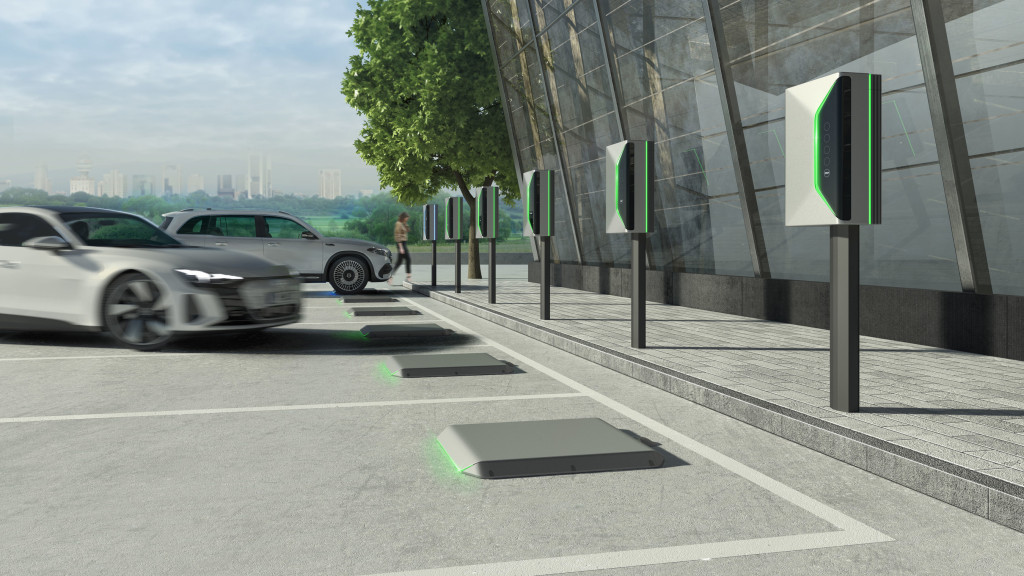
WiTricity and Siemens wireless charging station
Tesla isn’t the only company to give the tech the spotlight in recent months. At CES in January, Stellantis’ Ram truck brand teased an inductive charging robot that might allow hands-free charging without parking in exactly the same spot every day.
WiTricity expects an inflection point in the market around 2025 or 2026, when it sees a wider range of luxury and then mass-market models offering the tech as a feature or option. But if Tesla adopts the technology widely around then, it could help significantly lower the cost of entry for the technology.
“History has shown us that things that can go wireless do,” Amy Barzdukas, WiTricity’s chief marketing officer, said to Green Car Reports.
And based on another piece of news to emerge from Investor Day—that Tesla will adopt bidirectional charging capability—going wireless with charging makes even more sense, Barzdukas argued.
“We demonstrated that wireless charging can be bidirectional; that’s become an increased focus, and we see some great opportunities where wireless charging can play a role in stabilizing the grid, because it can allow for passive V2G,” she said. “You don’t have to remember to plug it in to be able to have that support, whether it’s commercial fleets or private individuals, once the regulatory and utility issues get ironed out.”
A study conducted last year for WiTricity among those who currently own an EV or intend to get one within two years showed support. Bidirectional wireless charging placed at the top among premium tech features—topping self-driving capability, premium audio, and park assist. More than 75% of respondents said that they would install wireless charging in their driveway or garage.
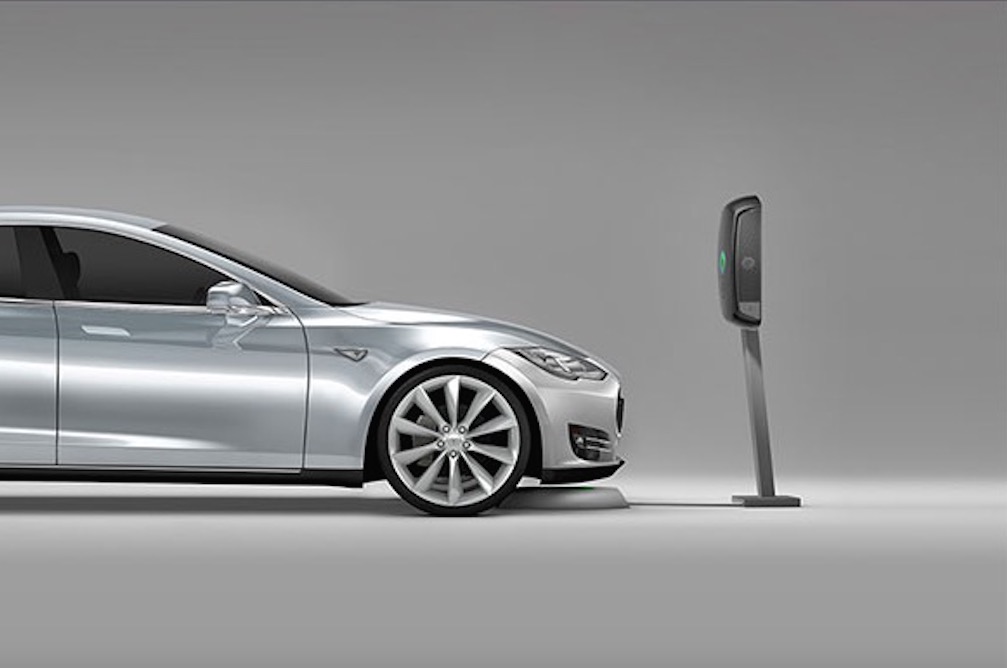
Evatran Plugless wireless charger for Tesla Model S
That survey didn’t talk cost, and while there have already been some aftermarket entries for Tesla vehicles, the few thousand dollars for a pair of pads and related components has been one of the prohibiting factors up until now.
Costs will drop significantly as the technology is deployed at volume, as materials improve and parts are consolidated, Barzdukas added.
“The price for a wireless charger in 2030 should be easily commensurate with a plug,” the WiTricity executive said.
Efficiency matters for Tesla owners, and it was one of the themes of the Investor Day presentation. So it’s worth pointing out that WiTricity’s tech receives 99% of the energy it sends, coil-to-coil, while its efficiency overall, from the circuit box to vehicle battery, is about 90% to 92%—in the same range as most plug-in charging.
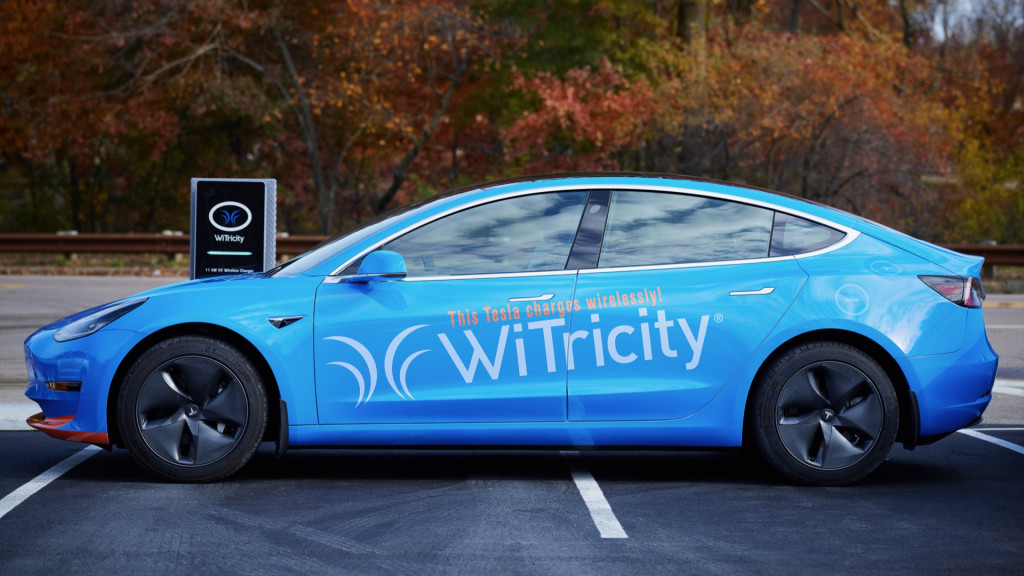
Tesla Model 3 equipped with WiTricity wireless charging system
Charging rates are comparable to wired, too. Last June the company reported that its wireless charging system fitted to the Model 3 delivered about 10 kw to the car, equating to about 48 miles of range per hour. At that time, the company noted that its wireless charging wasn’t limited to 11 kw and higher-power versions are possible.
In the meantime, WiTricity plans to sell its setup in an aftermarket charging system for EVs, with the expansion later this year of an early beta test of the system.
And now that wireless charging tech has been linked to Tesla’s future—however tenuously—expect it to show up on more option lists for EVs of all brands sometime soon.
[ad_2]
Source link




